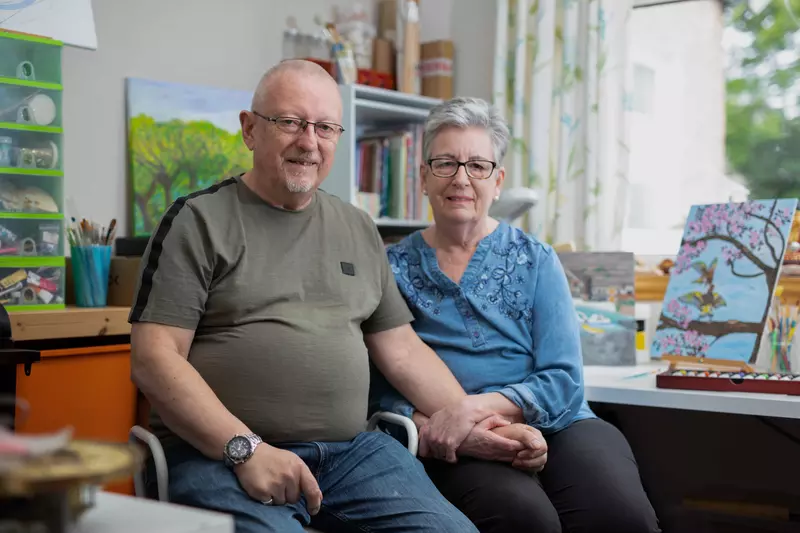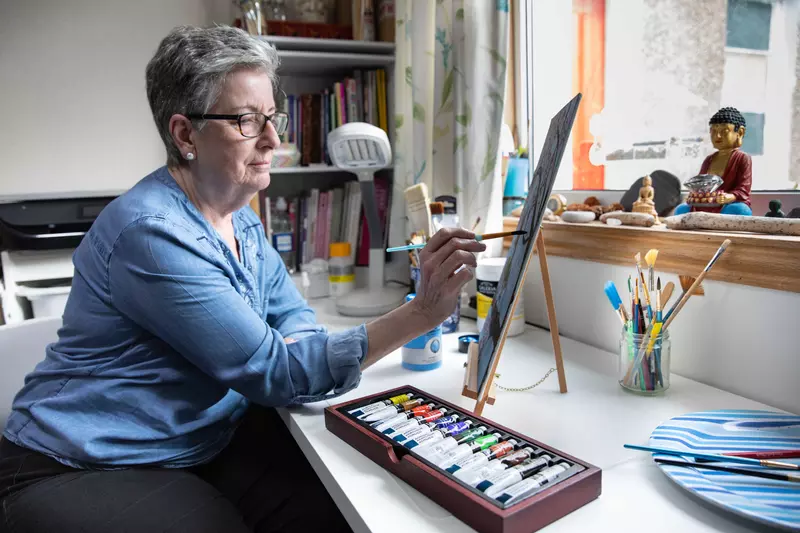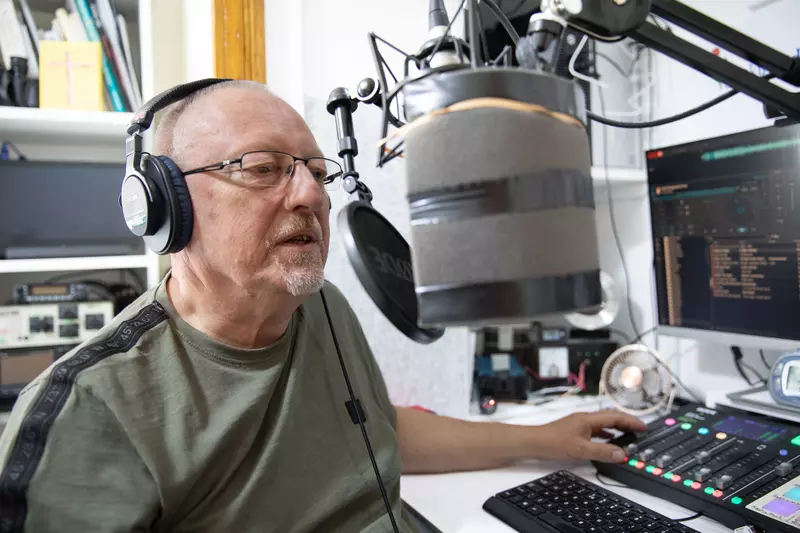Learning to live with Parkinson's dementia
John and Susan were living hundreds of miles apart when they met online, after both being diagnosed with Parkinson’s. 7 years later, they now live together in the Scottish Highlands.
“We understand each other’s difficulties,” says John - not least because John and Susan also now have Parkinson’s dementia.
“We found ourselves on the same Facebook group and we started chatting,” John says before Susan adds, laughing: “And here we are now, in Scotland - and married!”
John and Susan’s stories started 7 years ago. At the time, Susan was living in the Midlands, and John on the south coast.
Susan admits she knew something wasn’t right for a few years beforehand, but eventually saw her GP after her legs gave way at home. She was diagnosed with Parkinson’s at her first neurology appointment.
John’s journey saw him visiting his GP with different issues, before he developed muscle weakness and a tremor. He remembers that appointment: “I walked in and said, ‘Google says I’ve got Parkinson’s, how do we disprove or prove this?’”
Over the border
After receiving his Parkinson’s diagnosis, John joined several Facebook groups about Parkinson’s. Susan was also a member of one of those groups.
“We started chatting and had a lot in common,” says John. “We eventually arranged to meet and got on so well that a few months later I moved in with Susan in Derby.”
The move north to a small village in the Scottish Highlands came after John and Susan visited and fell in love with the area. The quieter pace of life has made a positive impact.
“One thing we hated about living in Derby was the hustle and bustle,” Susan says. “Now we can take our dog, Millie, to the beach and have the whole place to ourselves. The peace has helped us a lot.”

A new diagnosis
John was diagnosed with Parkinson’s dementia two years after receiving his Parkinson’s diagnosis. It feels, he says, “like one of my cogs is a bit bent, but the cog is still working there.”
Then last year, Susan began experiencing memory problems. “I couldn’t read because by the time I finished the last paragraph on a page, I’d forgotten what I’d read.”
John had also started to notice changes. “When we first got together, knocking up a cake was second nature to Susan,” he recalls. “Then all of a sudden she started asking for help because she couldn’t work out the weights and measures.”
The couple knew they needed to find out what was going on and, eventually, Susan was told she had also developed Parkinson’s dementia.
When you get diagnosed, you learn to adapt. It’s not easy, but once you have a few things in place, it becomes easier.
Systems and strategies have now become a key way to help John and Susan manage. They use a smart speaker for example, which they can talk to and add to their shopping list or a to-do list.
Familiarity is also important, as John explains: “If I leave a tool around, we have a drawer where Susan will put it. So if I can’t find something, I will look in there first.
“File names on the computer need to be very clear and stored in a specific place. Even in our cupboards everything has a particular place - otherwise it would be chaos.
“When you get diagnosed, you learn to adapt,” he says. “It’s not easy, but once you have a few things in place, it becomes easier.”

Seizing opportunities
Despite some challenges, John and Susan continue to take advantage of the opportunities that come their way. “We’ve operated like that since we got together really,” says John.
This attitude has seen the couple launch Shaky Radio, which streams radio programmes, raises awareness about Parkinson’s and shares information.
“It keeps us going,” says John. “It keeps our minds active and socially connected to people - we have friends all over the world through the radio station.”
Painting is another of John and Susan’s passions. “I started painting after I was diagnosed with Parkinson’s because I needed something to take my mind off it,” Susan explains.
Susan then introduced John to it. “She asked if I’d tried painting, but I couldn’t draw for love nor money!” laughs John. He tried it though and found it relaxing - and he hasn’t stopped since.
Susan’s dementia has affected her art, but she remains determined to keep going. “The other day I was trying to paint a cloud, which I’ve done lots of times before. I just looked at what I’d done and thought, ‘I don’t know what I’ve got to do.’
“But I’ve left it a few days and I will go in there and I will do it - even if I have to teach myself again.”

Unique insights
With both John and Susan living with Parkinson’s and Parkinson’s dementia, the couple find themselves in a relatively unique position. But this shared experience undoubtedly strengthens their relationship.
“Our Parkinson’s is different, but we understand each other and we help each other,” says John.
“What one person can do well, the other person can’t, but we balance each other out.”
The couple, who got married last year, admit they don’t spend too much time thinking about the distant future, but instead enjoy each day as it comes.
“We’re happy like that,” says Susan. “We know we have difficulties. We know it’s not easy. But for me, I love John dearly so I just want to live my life happily with him.”
John agrees: “Having Parkinson’s doesn’t mean it’s the end of the world. Dementia doesn’t mean it’s the end of the world. There is a full and happy life living together with Parkinson’s afterwards.”
Take part in research for Parkinson's dementia symptoms
UK research teams are studying whether ondansetron can effectively treat hallucinations in Parkinson's and Lewy Body Dementia.
If successful, this affordable, already licensed drug could become available to patients within a few years.

